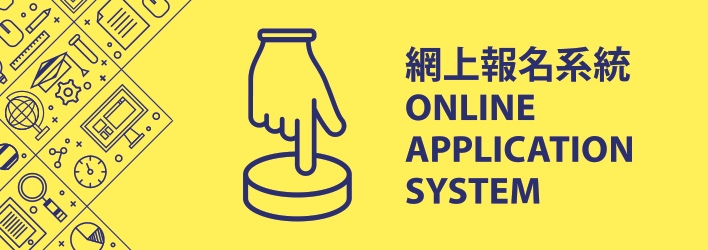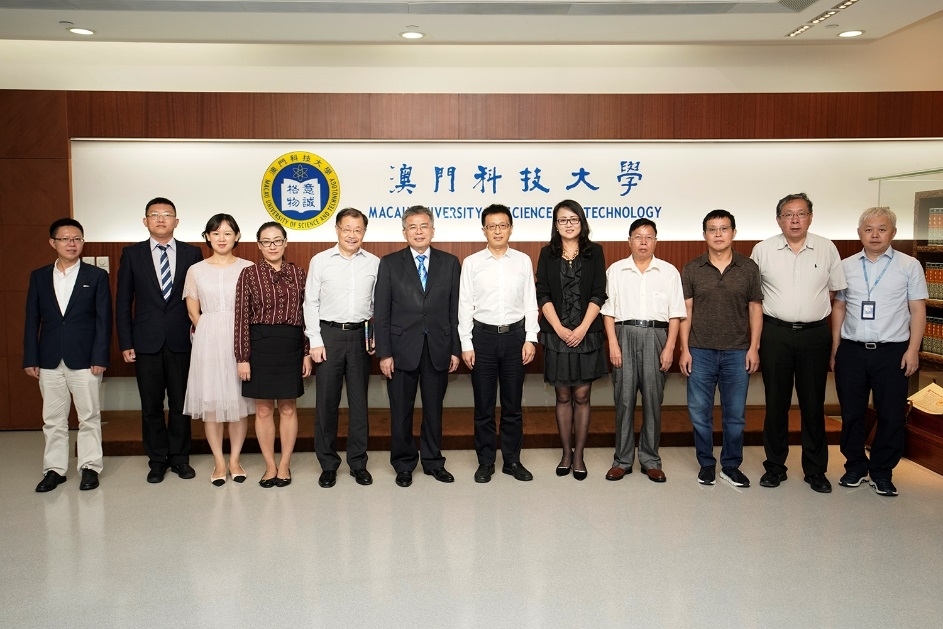
Group photo of Vice President Zhao Lixin and President Liu Liang (center right and left, respectively), Deputy Director LinYuan (5th from right) and other delegation members
Led by Vice President Zhao Lixin of the National Academy of Innovation Strategy (NAIS), which is affiliated to the China Association for Science and Technology (CAST), Deputy Director Lin Yuan of the Macao Policy Research and Regional Development Bureau, and other delegation members paid an inspectional visit to Macau University of Science and Technology in the afternoon of September 10, 2019. They were warmly received by President Liu Liang, Chair Prof. Zhang Keke, Director of the Space Science Institute and the State Key Laboratory of Lunar and Planetary Sciences, Director of School of Pharmacy Chair Prof. Zhu Yi Zhun, Vice Dean of Faculty of Chinese Medicine Prof. Zhou Hua, and Head of Research and Technology Administration Office Prof. Liang Yong.
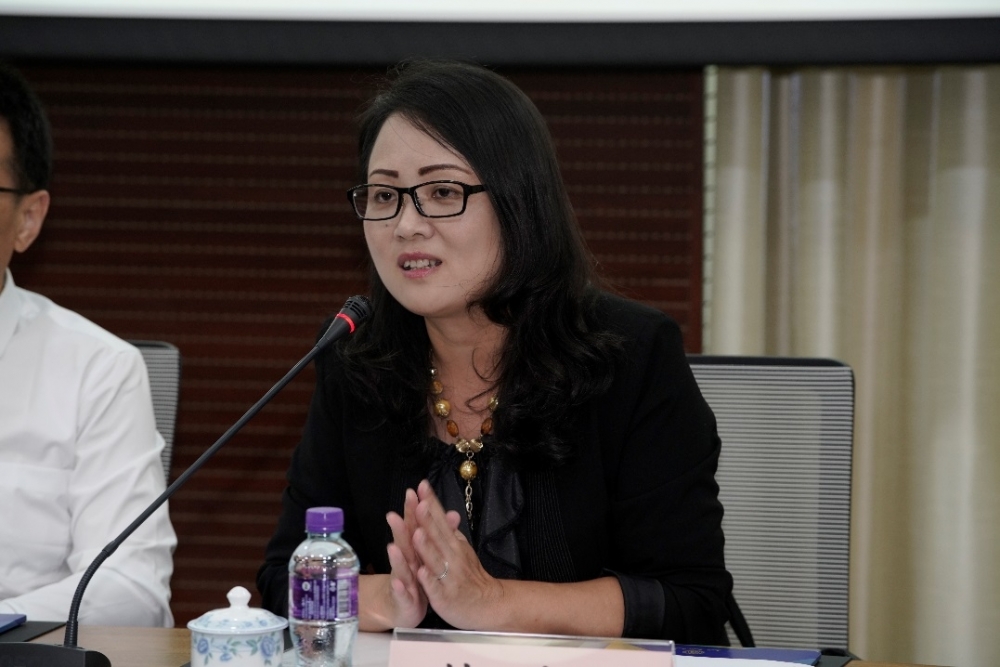
Deputy Director Lin Yuan speaking at the reception
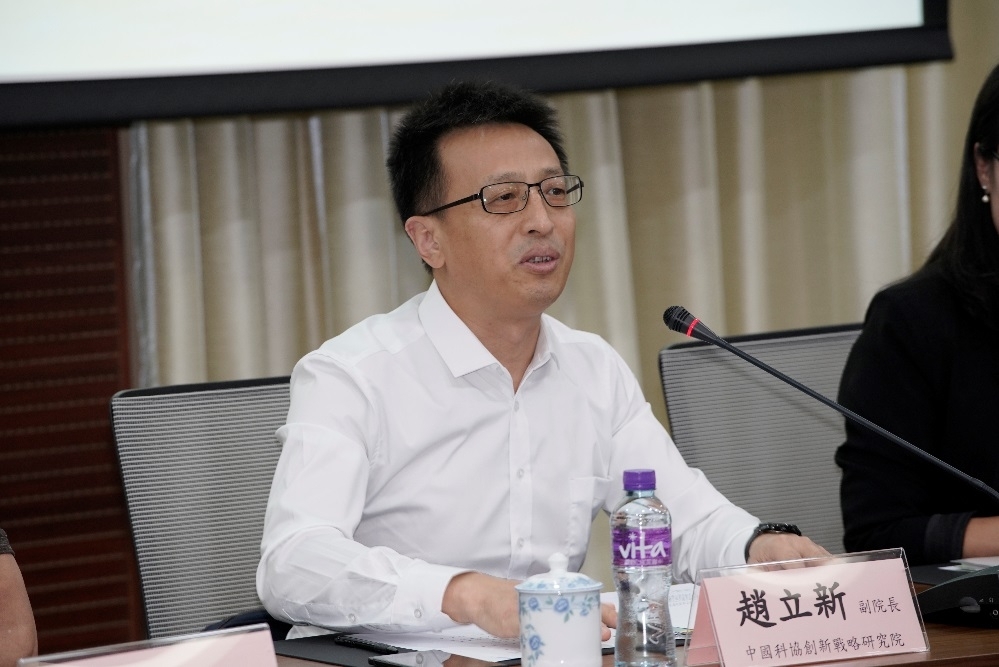
Vice President Zhao Lixin speaking at the reception
At the reception, Deputy Director Lin Yuan first spoke to thank M.U.S.T. for its support to the Macao Policy Research and Regional Development Bureau. She then gave praises to M.U.S.T. for its significant contributions to the implementation of the Outline Development Plan of the Guangdong-Hong Kong-Macao Greater Bay Area and to Macao’s strides toward becoming an innovative science and technology center in the west of the Greater Bay Area. Vice President Zhao Lixin also noted that although a young university, M.U.S.T. projects an image of compelling academic atmosphere and science and technology innovation. The inspectional visit mainly centered on an NAIS project titled “Macao’s conditions, strengths and potentials for transfer of science and technology innovation outcomes”.
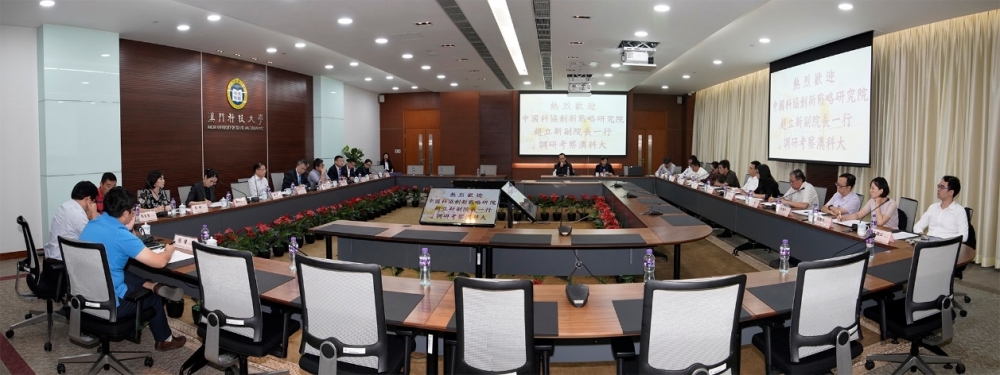
At the reception meeting
The M.U.S.T. participants took turns to speak at the meeting, providing a detailed introduction of the University in terms of transfer of innovative technology outcomes, including its development status-quo, successful projects, innovative practices and plans for seeking regional cooperation in promoting technological transfer. The members also brought to attention the difficulties the University is faced with in seeking technological transfer, the obstacles it has had when trying to bring in high-level international talents in science and technology innovations, and a set of advice for further development. The University also expressed expectations that the NAIS could provide some professional guidance and opinions, and the government could provide more policy-based support, opportunities and platforms for corporate exchanges, so as to foster and reinforce cooperation between universities and enterprises, who can use their own strengths and develop more research outcomes that cater to the special needs of the society and market.
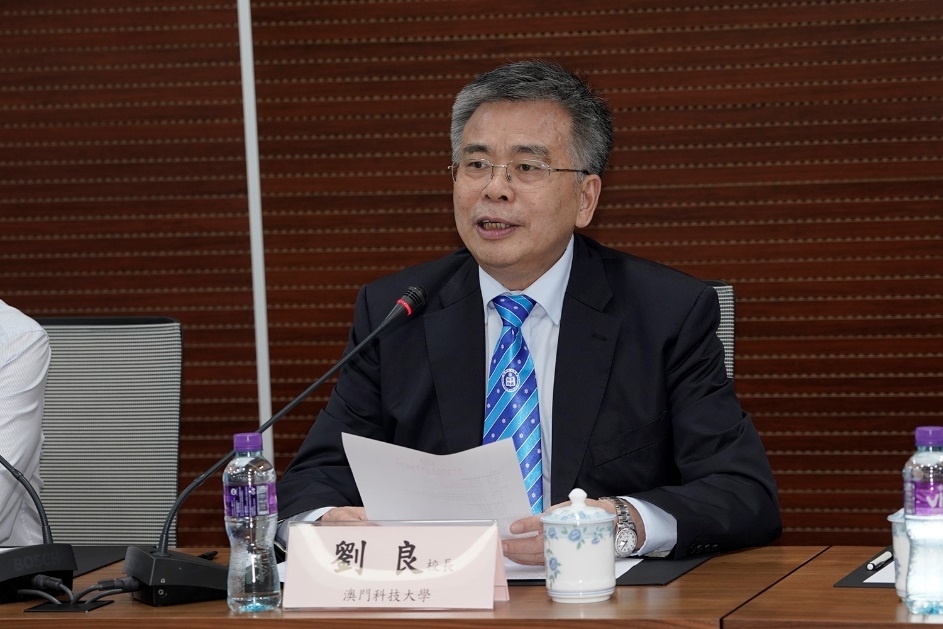
President Liu Liang speaking at the reception
President Liu Liang noted that M.U.S.T. has been taking the cultivation of outstanding patriotic talents as its missions, adopting the educational policy of attaching equal importance to teaching and research, regarding “quality” and “innovation” as its core drives, and seeking a strategy that features complementary development, which allows different parties to fully expert their own strengths. The University has brought in a large number of outstanding research talents from home and abroad, and is amassing forces to strive toward a research-based university so as to satisfy the societal needs for diverse talents. The University has put forth a procedural three-step development path from “platform + talents”, to “papers + patents” to “industrialization”, and encourages its teachers to place emphasis firstly on basic scientific research, and then grow priority areas in their respective fields, and finally develop high-technology-based industrialization.
President Liu Liang then expressed hopes that the inspecting experts could “feel the pulse” of Macao for its science and technology innovation development, and strike a better analysis for its positioning as a state-level platform. It’s hoped that the national government could install more state-level research and industrialization platforms in Macao based on the actual situation and its socio-economic development needs and potentials. The Macao government could take more initiatives to set up Macao-based Greater Bay Area joint funds and projects, reinforce industrialization, establish departments for innovative science and technology industrialization to coordinate toward innovative technology and industrialization, open “green channels” to bring in outstanding talents, take measures to retain talents and avoid turnovers, and create conditions that will advance scientific innovations.
Guests, experts and M.U.S.T. representatives engaged in discussions and exchanged views regarding the development status-quo, difficulties and suggestions for M.U.S.T. in scientific innovations and technological transfer.
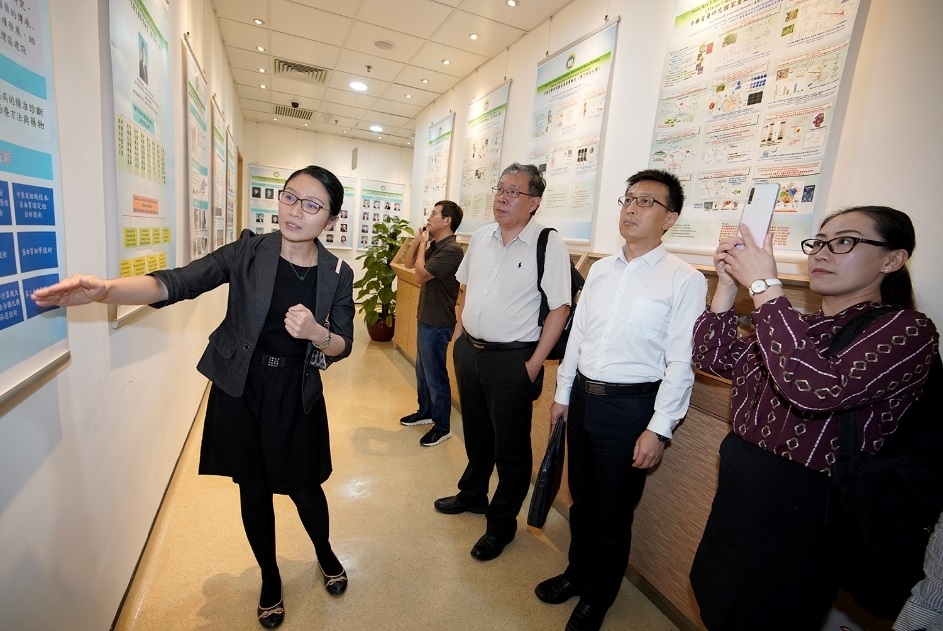
The guests were given a tour of the State Key Laboratory of Quality Research in Chinese Medicine
Following the reception meeting, the delegation was given a tour of the State Key Laboratory of Quality Research in Chinese Medicine and the State Key Laboratory of Lunar and Planetary Sciences.
Other members of the delegation include Vice Director Zhang Li of the Innovation Evaluation Department of NAIS, assistant researcher Zhang Yanxin, President Zhou Luming of Shenzhen CRI Innovation Center, who is also former chairman of Shenzhen Science and Technology Association, Director Wu Bin of the Institute of Quantitative & Technical Economics, Chinese Academy of Social Sciences, Director Chen En of the Economic Research Institute on Special Economic Zone, Jinan University, Director Ruan Jianzhong, Administrative Officer Wu Tianhao, and Technician Wang Jinjiang. Other M.U.S.T. members participating in the reception include Assistant Director Zhang Xiaoping of the State Key Laboratory of Lunar and Planetary Sciences, who is also Associate Professor of the Space Science Institute, and Associate Prof. Law Yuen Kwan, Associate Prof. Li Na, Associate Prof. Li Ting, Associate Prof. Ma Wenzhe, Associate Prof. Wu Qiang, and Associate Prof. Zhang Wei of the State Key Laboratory of Quality Research in Chinese Medicine.




